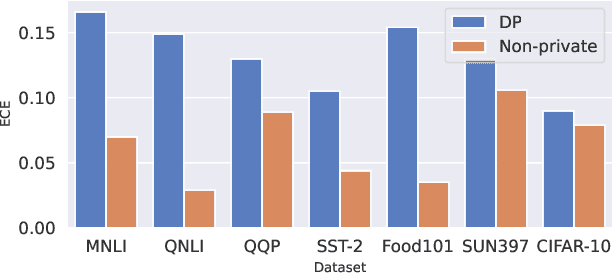A Closer Look at the Calibration of Differentially Private Learners
Paper and Code
Oct 15, 2022



We systematically study the calibration of classifiers trained with differentially private stochastic gradient descent (DP-SGD) and observe miscalibration across a wide range of vision and language tasks. Our analysis identifies per-example gradient clipping in DP-SGD as a major cause of miscalibration, and we show that existing approaches for improving calibration with differential privacy only provide marginal improvements in calibration error while occasionally causing large degradations in accuracy. As a solution, we show that differentially private variants of post-processing calibration methods such as temperature scaling and Platt scaling are surprisingly effective and have negligible utility cost to the overall model. Across 7 tasks, temperature scaling and Platt scaling with DP-SGD result in an average 3.1-fold reduction in the in-domain expected calibration error and only incur at most a minor percent drop in accuracy.
 Add to Chrome
Add to Chrome Add to Firefox
Add to Firefox Add to Edge
Add to Edge